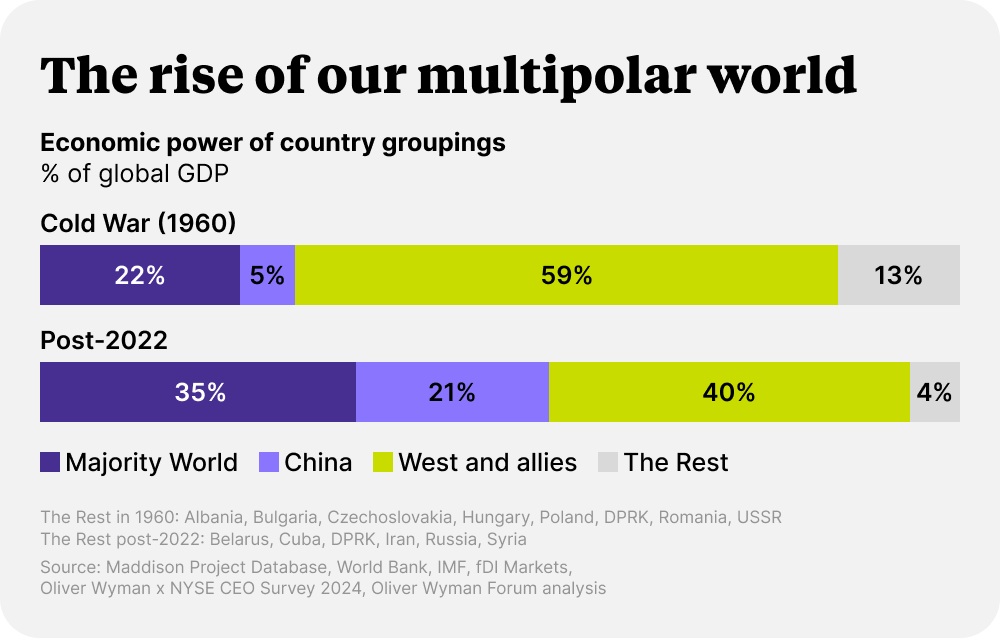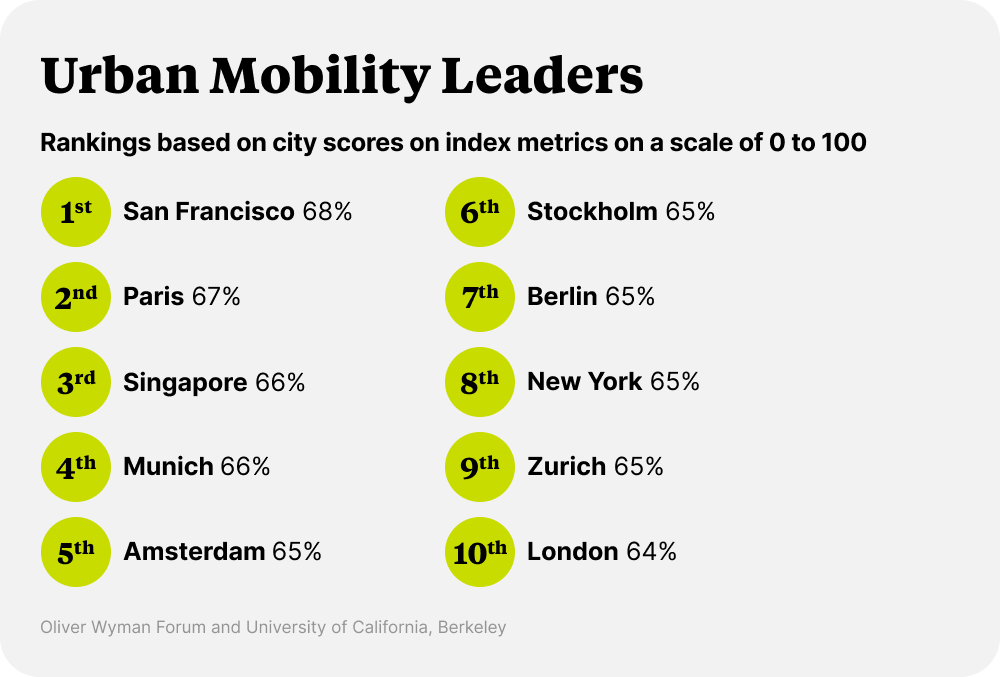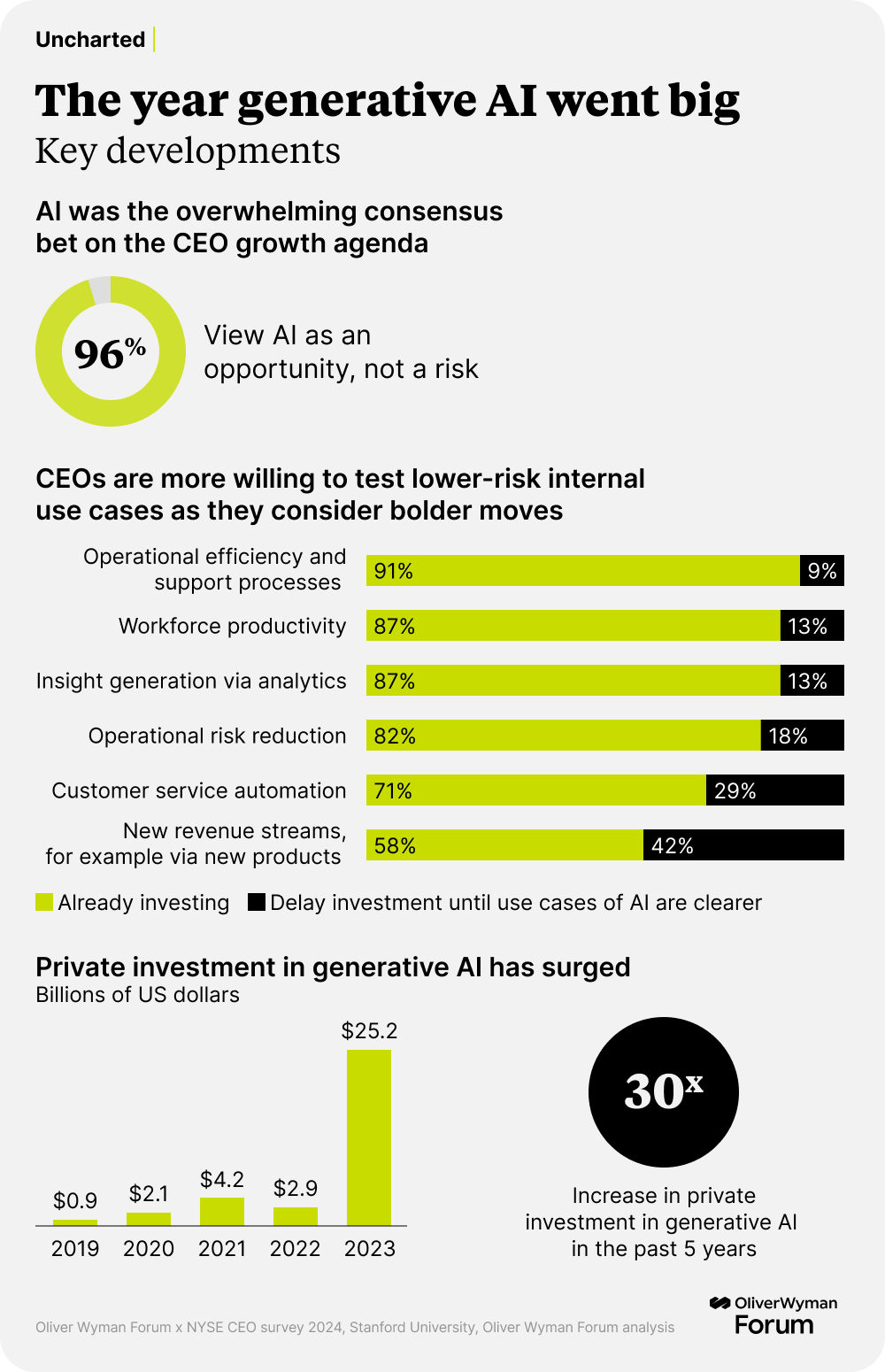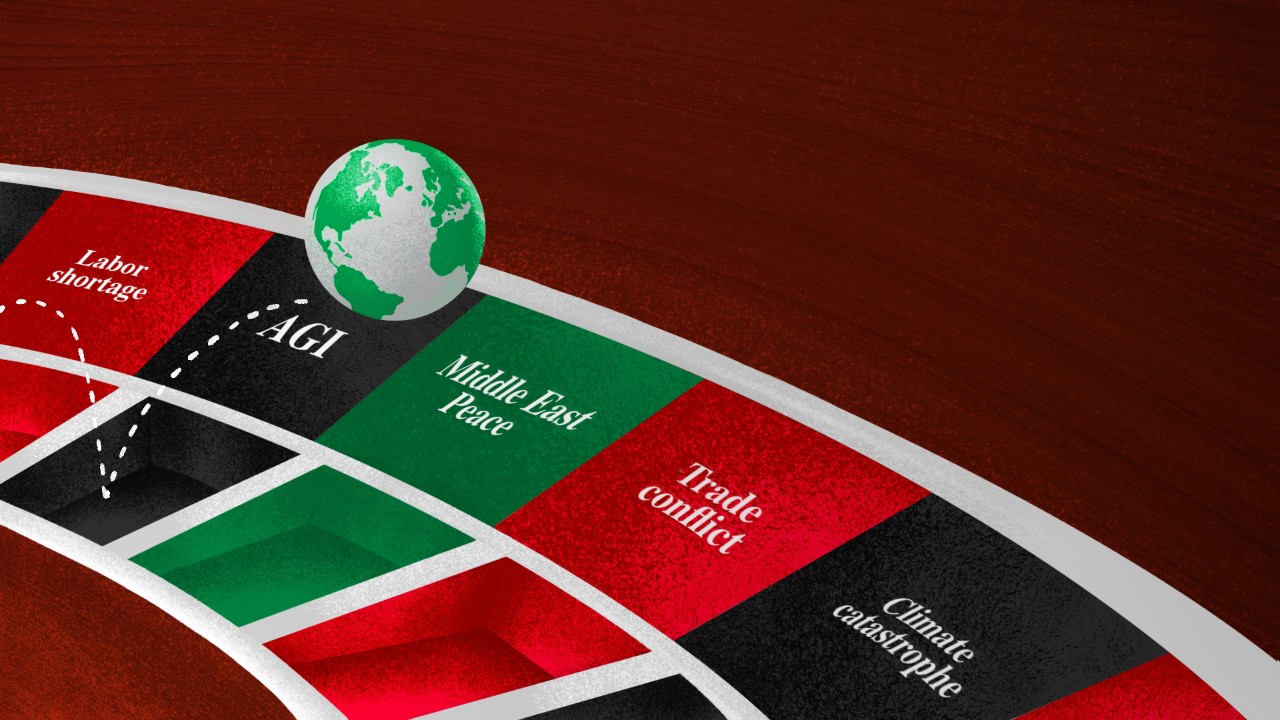Just when CEOs were getting used to increasing volatility in the business environment, the geopolitical world has become as volatile and disruptive as the marketplace.
It’s not just the election of Donald Trump, which is prompting business leaders to plan for a new American policy cocktail of low taxes, deregulation, and fresh tariffs. In December alone, the Assad family’s half-century reign in Syria collapsed almost overnight; President Yoon Suk Yeol was impeached after declaring martial law in South Korea, leaving the world’s 12th-largest economy shrouded in political uncertainty; and Chancellor Olaf Scholz’s government fell in Germany, forcing early elections.
These developments, combined with the continuing war in Ukraine, a China grappling with sluggish growth, and a potential wave of new US tariffs, promise a world of challenge – and opportunity – for leaders in 2025. “Business leaders don't operate in an apolitical world,” Richard Haass, senior counselor at investment bank Centerview Partners and a 50-year veteran of the US foreign policy establishment, said in an interview with the Oliver Wyman Forum. “Whether it's access to markets or supply chain issues, you are going to be affected by developments around the world.”
With that in mind, we sought views on the 2025 geopolitical outlook from Haass and two other seasoned international observers: John Sawers, a veteran British diplomat and intelligence official, and Kishore Mahbubani, former Singaporean diplomat and dean of the Lee Kuan Yew School of Public Policy at the National University of Singapore.
Trump takes on a multipolar world
There is a paradox at the heart of Trump’s approach to international relations that may keep political and business leaders off balance. Economic power is more widely distributed than ever in today’s world even as the United States retains a preponderance of military power. Yet Trump’s agenda looks to flex US muscle mainly on economic issues, with threatened tariffs against both friends and foes, while seeking to minimize the use of military force. “He doesn’t believe that America should be the world’s policeman,” Sawers wrote in a column for the Oliver Wyman Forum.

The incoming president’s penchant for flouting convention, and what Sawers sees as a strategic use of unpredictability as a negotiating tactic, also may create tensions. That’s especially the case with China, where Trump has threatened to slap an extra 10% tariff on top of an already-promised 60% levy on Chinese goods. “I expect relations at least initially to be very bumpy between the US and China,” Mahbubani said in an interview.
Yet much of this isn’t new. Joe Biden criticized tariffs during the first Trump administration but left them in place after assuming the presidency in 2021. Many companies have been adjusting to this new normal by diversifying supply chains and shifting some production from China to friendlier countries. In addition, many global leaders see Trump as more transactional than ideological. “If the Chinese offer some kind of a good deal where they buy a lot more products from the United States, he might go for it,” said Mahbubani.
Europe’s dilemma
While the US-China relationship seems likely to be tested in 2025, a second Trump presidency could pose an even greater challenge for Europe. US tariffs, even at a modest 10% rate, would hurt a region struggling to grow faster than 1% and reeling from Chinese competition to its crucial automotive industry.
Restrictive and inconsistent regulation across the European Union (EU) is widening the bloc’s growth and productivity gap with the United States while a misplaced bet on Russia has left EU companies paying as much as five times more for natural gas than their US counterparts. Mario Draghi, the former president of the European Central Bank, has proposed an ambitious package of structural reforms and increased public investment in research and development to spur EU growth and innovation, but even if adopted in full, it would take years to pay dividends.
Budget-constrained governments, meanwhile, will find it difficult to meet Trump’s recent demand to lift their defense spending targets to 3% of GDP from 2%. Scholz’s coalition German government collapsed because of a dispute over his plan to relax debt rules to raise spending on infrastructure and support for Ukraine. “The comfortable position Europe has had since 1989, free riding on America’s defense guarantee, is coming to a rapid end,” said Sawers. “Europeans have to stand up for themselves.”
For British Prime Minister Keir Starmer, the goal of deepening relations with both the EU and the US will be tricky. “The politics of moving closer to the European Union will be eased by Trump’s reelection,” said Sawers, “but doing so will narrow the space Starmer has to strengthen the UK’s relationship with the United States.”
Diplomatic opportunities
Trump’s opposition to many of America’s military engagements was popular with many of his supporters. The big question now is whether he can take advantage of the opportunity created by recent events to play peacemaker.
Israel’s devastating blows to Hamas in Gaza and Hezbollah in Lebanon, combined with the swift collapse of the Assad regime in Syria, have changed the regional power balance and put Iran on the defensive. “There is extraordinary opportunity in the Middle East to harvest some of those developments and turn them into something enduring and good,” said Haass.
At the same time, Trump may be tempted to take advantage of Iran’s weakness to seek to damage or destroy Iran’s nuclear weapons program. Israeli Prime Minister Benjamin Netanyahu is similarly inclined, says Sawers, but “only the Americans have the ordnance and reach to destroy facilities deep under rock and concrete.”
In Ukraine, meanwhile, the odds of a settlement of the conflict in the coming year have increased. That will be a bitter pill for Volodymyr Zelenskyy and his people to accept, but with Trump threatening to cut off aid and Ukraine’s prospects of regaining meaningful territory dwindling, an end to the bloodshed may be the best option. Sawers noted that Finland ceded territory and promised to remain neutral to end its conflict with the former USSR after World War II. “If Ukraine manages its future relations with Moscow as well as Finland has done over the last 80 years,” he said, “that might be the best available outcome.”
Don’t neglect domestic institutions
The United States and many of its allies, including France, and Germany, and South Korea, also face a major challenge at home: overcoming public skepticism and polarization and rebuilding faith in the ability of democratic institutions and traditions to meet today’s economic and social challenges. “Just because we're nearing our 250th anniversary as a democratic country,” said Haass, “we shouldn't assume our future is baked into the cake.”
Haass called for a revival of civic traditions in his latest book, “The Bill of Obligations,” including a willingness to get involved in the political process, to be open to compromise, and to value norms and promote the common good. He sees an important role for the private sector in supporting those objectives.
While his recommendations are tailored to America’s political and historical context, they have broad relevance for countries seeking to promote development and foster stable, healthy societies. “Virtually everything businesses do depends on the rule of law, on physical security and stability, on the perception that government is operating in a fair way,” he said. “So business leaders ought to be in the forefront of supporters of democracy.”
Technology is fast changing the face of urban transportation. A growing number of cities around the world are embracing everything from autonomous vehicles (AVs) and smart traffic systems to more efficient electric vehicle (EV) chargers and air taxis to reach their mobility goals.
Such solutions can change urban transportation for the better. Robo-taxis, for example, have the potential to lower ride-hailing costs; autonomous trains and buses can make public transit more efficient; and smart EV chargers can save time and energy.
The Oliver Wyman Forum’s 2024 Urban Mobility Readiness Index, conducted in partnership with the University of California, Berkeley, tries to capture the impact these technologies are having on urban planning and mobility demand. This year’s index adds new metrics on innovation, social impact, infrastructure, and system efficiency. The cities that top the index consistently invest in infrastructure and embrace innovative technologies to increase system efficiency.

San Francisco, which tops the overall ranking, embraces cutting-edge innovation while improving access to public transit. The city is providing $40 million to build affordable housing and other facilities near public transit lines. It also is among the first cities to offer robo-taxis, and benefits from government investment in research and technologies like charging infrastructure and AVs, which will reduce carbon emissions and optimize traffic flows.
Other cities also are eager to innovate. AV services, for example, are available in Beijing and Shanghai, while Austin and Munich recently held autonomous driving tests. In Europe, funding for self-driving startups rose in 2023 by 33%, to $1.6 billion.
Innovation takes to the air
Leading cities also are investing in urban air mobility infrastructure, sometimes spurred by global events. Several players are planning to make air taxi services available in Los Angeles for the 2028 Summer Olympic Games, while Shanghai saw the debut of an air taxi service in August 2024.
Cities that embrace such new services can create a local business ecosystem that attracts and builds a customer base. More than 40% of global consumers say they would definitely or probably use a robo-taxi, while 39% said the same regarding air taxis, according to a June 2024 Oliver Wyman Forum survey.
At the same time, many cities are overhauling their existing transit infrastructure, which continues to see a post-pandemic recovery in ridership. Paris, which ranked second in this year’s index, completed a $3.9 billion extension of its metro in time for the 2024 Olympic Games. Mexico is expected to invest $2 billion in transportation and urban development in its host cities for the 2026 World Cup, including Mexico City and Monterrey.
Former Congressional Deputy, Mexico
“More women in power benefits the entire society because the horizon we are building is to have more just, equitable, and equal societies. We are building a society for everyone.”
Every month, we highlight a key piece of data drawn from three years’ worth of consumer research.


